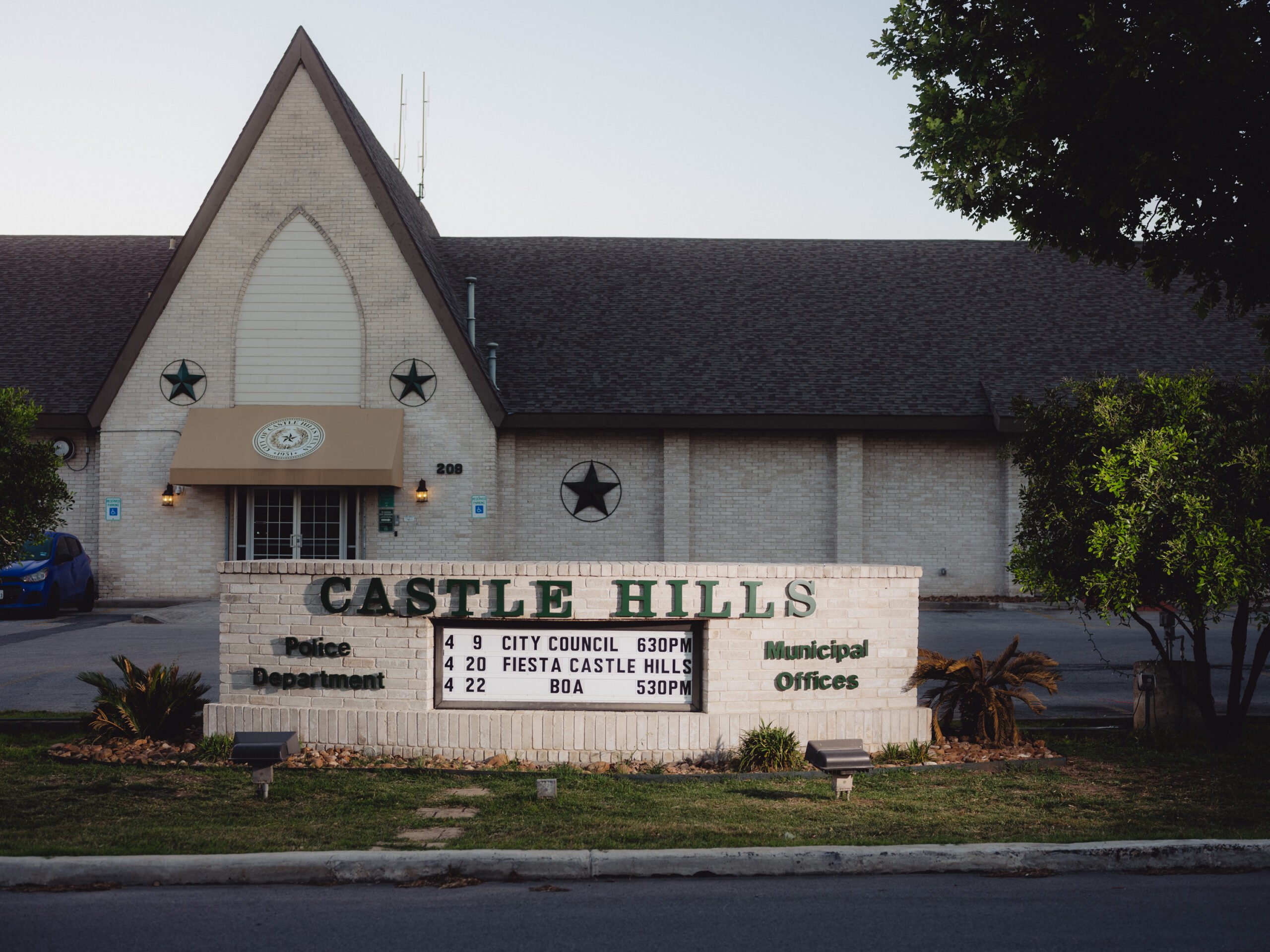ustxtxb_obs_1965_04_02_50_00014-00000_000.pdf
Page 5
at : -os+Office, tx.C4103,’OU on, ex. 6 overt/ ti Aapraisin s -ilortc j a5eVinckncIrty off iCe.tlirversick 74491 HoV5TOrt Be A Client of New York City One good thing about Dallas: it’s never very far behind Houston. Not quite a year had passed since the Houston Symphony’s New York debut in Philharmonic Hall, under Sir John Barbirolli, before the Dallas Symphony, under Donald Johanos, made its first local appearanceat Carnegie Hall, naturally, in the best conservative tradition. As it generally does in such contests, Houston suavely asserted its primacy. Sir John promptly came North with his symphony again, this time at the invitation of Carnegie Hall to participate in that venerable structure’s Festival of Visiting Orchestras. God knows what lavish oneupmanship will astonish the nation if the Trinity ever becomes a ship channel. Ever traditional, Dallasites followed the pattern set last year by Houstonians and flocked North to pack the house. New Yorkers were expected to get into the concert, though; for a fourand possibly fivecolor brochure called “A Report on the Arts in Dallas” came with every program. \(I trust it wasn’t a Freudian slip that color photos illustrated painting captions about “exciting shops . . . superior hotel facilitiest,. . . variety of restaurants” while the arts got black-and-white treataway foisted on me at another concert, not by Houston but Mormons when their Tabernacle Choir appeared with the Phila 1 4 The Texas Observer SPLIT RAIL INN 217 South Lamar Austin Where Union Men Meet delphia Orchestra. Skeptical as ever, despite this stimulating reading, I must report only what my senses confirm: whatever glories other arts boast, the Dallas Symphony is less than second-rate. I RECALL better playing on its broadcast tapes from the mid-50’s, when Walter Hendl conducted; though to give Donald Johanos his due, I must add I now listen with ears sharpened by live concerts of the Cleveland Orchestra, the Boston Symphony, and the Philharmonicjust to name those I heard the week before \(some near those high standards were the brass. Other winds proved competent in solos but bland in unison ; percussion had its moments but was often nerveless. Strings were vilewiry violins, drab violas, lustreless basses, and absolutely terrifying cellos. The most distressing mannerism of Johanosfar worse than his tendencies to fragment slower passages and give an indecisive beatwas his show of mystifying rapture over the plangent waves of yowling catgut that beat about the podium. I grant the strings admirable precision in their entrances, but after each it was chaos and dark night until well along in the evening when either their tone mellowed or my ears went numb. This kind of scratch-as-scratch-can playing would cause a riot at Philadelphia’s Academy of MusicI heard that orchestra the next nightbut this evening at Carnegie Hall everyone was tolerant to a fault. Ironically, displeasure erupted only after the purported symphony that well-intentioned Dallasites had recently commissioned from New York’s own Gunter Schuller. It was a particularly nasty bit of 12-tone yawping that pounced on most of Webern’s ideas but scorned his merciful brevity. Mr. Schuller fearlessly came forward to claim the thing as his own and was booed for our pains. General acclaim from this near-capacity house was reserved for Texas talent, no matter how raw. Young Ivan Davis \(an strings and, immune to all dangers but that variable Johanos beat, slammed out an incongruously Lisztian performance of SaintSaens’ Fourth Piano Concerto that brought down the house. I could contain my enthusiasm for everything done that evening but the finale of what, under this damned revised numbering, we must now call Dvorak’s Eighth. Johanos was, for once, filled with the divine afflatus and got a shockingly decent performance out of the orchestra, just in time to end the evening. The cheering section might have done a locomotive for an encore and got it, but I can’t say since I left immediately. FOR THE RECORD, I am delighted to add that neither Rich, of the Tribune, nor Schoenberg, of the Times, agreed with me, nor, for that matter, with one another. Criticism is not an exact science. In Texas, it often seems a branch of the petroleum industry since amusements editors are the only gushers from which any amount of crude oil is allowable and natural gas demanded. Such stuff lubricates civic pride, but it provides only the lowest octane fuel for artistic progress. What the Dallas Symphony needs now is a demanding public willing to settle for nothing but what its own ears tell it is the best. The orchestra needs a generous public, too. The money drained off by that foolish “Report” should have gone into better salaries for better musicians possibly male musicians since those dreadful strings had a higher percentage of women \(40%, Oddly enough, that “Report” shied away from stating the orchestra’s budget but tossed off half-lies about its “65th anniversary season” \(it’s not even its 20th \(about a dozen of which had just been bigger budget is absolutely essential. It was a relief to return to the Houston Symphony and find an orchestra firmly established as a second-rate ensemble. Sir John’ Barbirolli chose a program \(Weber, mirably suiting his own personality and talent \(“genial” and “stodgy” are my seemed more strident than I recall in Philharmonic Hall, but the strings, though lacking sheen, seemed improved by the move to Carnegie. More familiarresponsible, in fact, for a “shock of recognition”was the Houston tympanist, a true child of this century, who works with a vengeance over what a musician friend with Houston contacts assured me are plastic drumheads. I singled this worthy out for obloquy last year, earning praise from my friend for being the only critic to notice anything odd. I said it was nothinga typical Texas Observer expose. I had no idea just how typical, though, until I entered Carnegie to find the little offender triumphantly thonking away, weirdly resonant as ever despite my heart-felt complaint. The concert offered ample assurance that neither he nor I has lost our magic touch. Dlitant Observations Texans on Tour Harris Green


